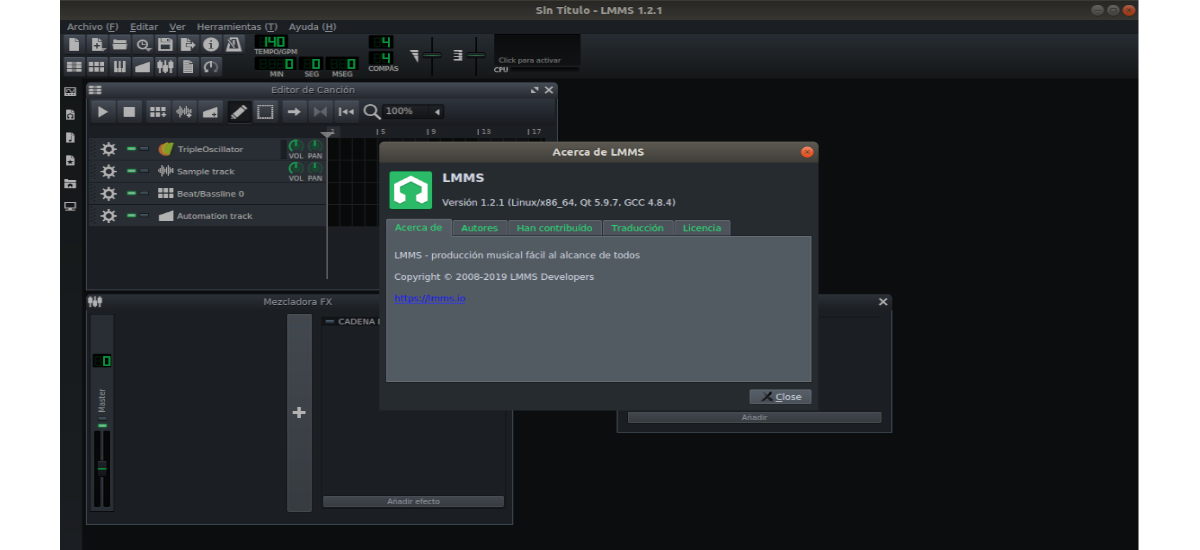
In the next article we are going to take a look at LMMS 1.2.1 (Linux MultiMedia Studio). This program was designed with allow users to produce music without too many complications from a Gnu / Linux operating system. With this software we can play live with a keyboard, synthesize sounds or organize samples, among other things.
This is one digital audio workstation, which is also an open source and multiplatform project. It was designed to act as a free alternative to popular music creation apps.
This application incorporates a wide range of effects and instruments. For users, this will allow us to have an incredible number of possibilities when it comes to mixing audio. In addition we will also have a effects mixer, with 64 FX channels and support for different standards.
Key features include, but are not limited to, a song editor to compose audio tracks or a rhythm and bassline editor to generate rhythms and bass lines. In addition we will also have available a Piano's keyboard easy to use for editing melodies and patterns as well as complete sources of controlled automation computer based automation and user-defined track-based automation.
Changes and features of LMMS 1.2.1
- We can compose music on both Gnu / Linux, Windows and macOS.
- In this version 1.2.1 the home screen was updated.
- It will allow us to compose songs, create sequences and mixes, in a simple interface. We can create melodies and rhythms, synthesizing and mixing sounds, arranging samples and much more.
- Play the notes using a keyboard from your computer or use a MIDI controller.
- We will have in this software a Rhythm + Bass editor.
- Built-in compressor, Limiter, Delay, Reverb, Distortion, and Bass Enhancer.
- Graphic and parametric equalizers included.
- Spectrum Visualizer / Analyzer embedded.
- Import files MIDI and projects Hydrogen.
- Fine tune patterns, notes, chords and melodies. In addition, it also allows the recording of chords directly from the piano-roll editor.
- Automation Assessment based on user-defined tracks.
- Let the clips on the sample track are resized.
- In this program update fixed build with musl C runtime library.
- Fixed issues with ZynAddSubFX and / or VSTs related to automation.
- It also offers better default sounds for Nescaline and Freeboy.
- Packaged with ready-to-use content. From a assortment of instruments and effects, presets and samples up to VST and SoundFont support.
- Built-in support for 64-bit VST instruments via 32-bit VST bridge (64-bit Windows). Support for plugins is also included. VST effects (Gnu / Linux and Windows).
- Support for LADSPA plugins.
Use LMMS 1.2.1 on Ubuntu
Download as AppImage
We will find this update available as Appimage for use on Ubuntu 18.04 Bionic Beaver and higher, as well as for other Ubuntu-derived systems. To get hold of this file, we will only have to open a terminal (Ctrl + Alt + T) and download the .AppImage file using wget command as it's shown in the following:
wget -c https://github.com/LMMS/lmms/releases/download/v1.2.1/lmms-1.2.1-linux-x86_64.AppImage
The next thing we will have to do, once the download is finished, is give the necessary permissions to this file. We will do this by writing in the same terminal:
chmod +x lmms-1.2.1-linux-x86_64.AppImage
After this we can only do double click on the file to start using the program.
Install with Flatpak
This LMMS update is also available on Flathub. As indicated on this page, to proceed with the installation, in a terminal (Ctrl + Alt + T) you just have to type:
flatpak install flathub io.lmms.LMMS
After the installation, we can launch the program typing in the same terminal:
flatpak run io.lmms.LMMS
Install with APT
Most Gnu / Linux distributions include LMMS in their repositories, Ubuntu and derivatives are no exception. At the time of this writing, in Ubuntu's default repositories still offer version 1.1.3. But if you are interested, its installation is simple. You just have to type in a terminal (Ctrl + Alt + T):
sudo apt install lmms
It can be obtained more information about this program in the user manual that they offer in the project website.
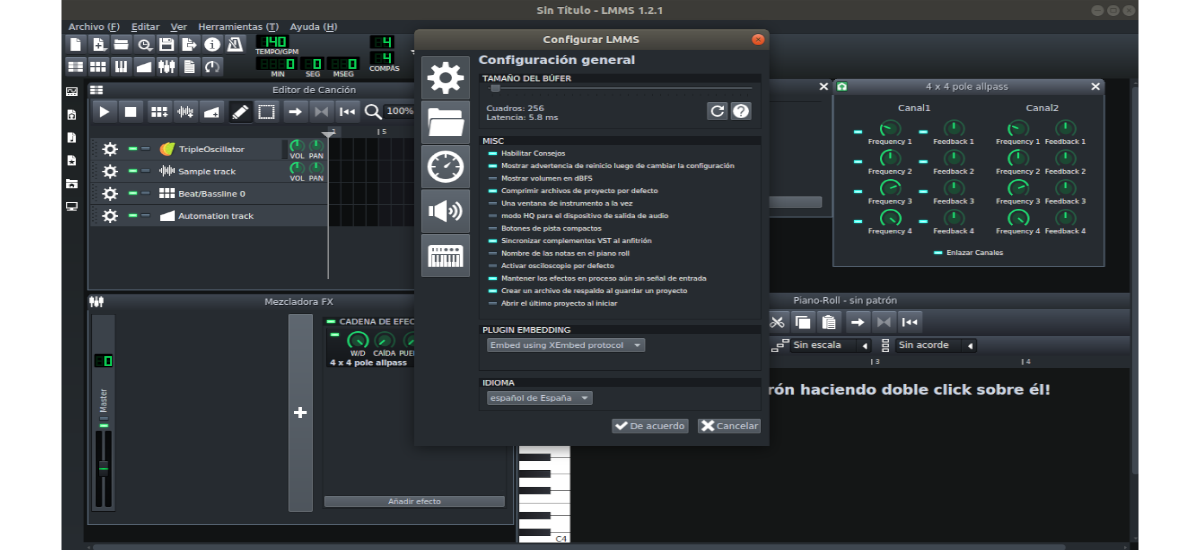

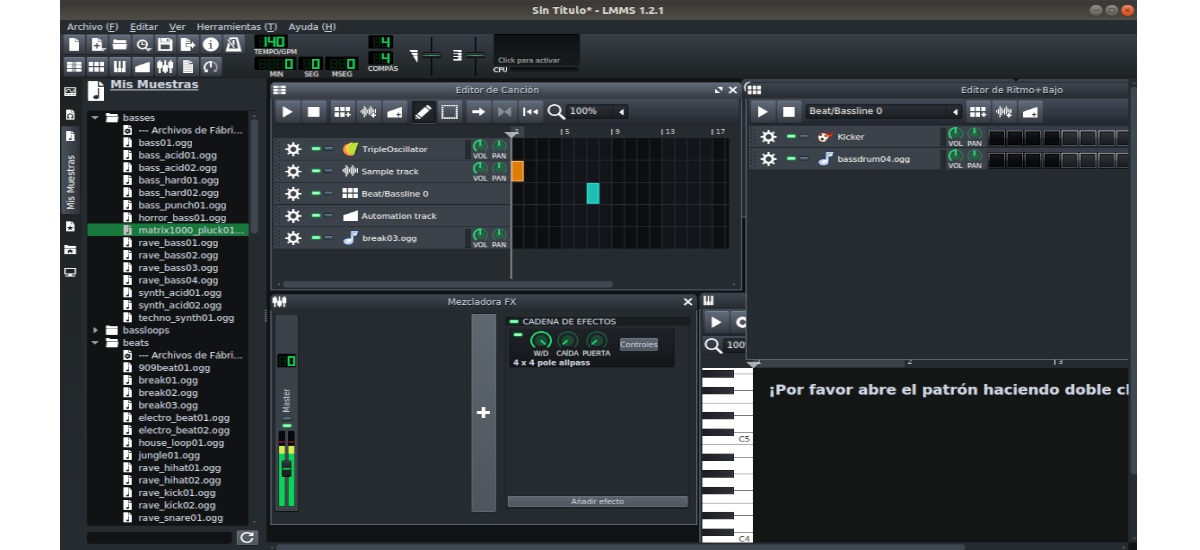
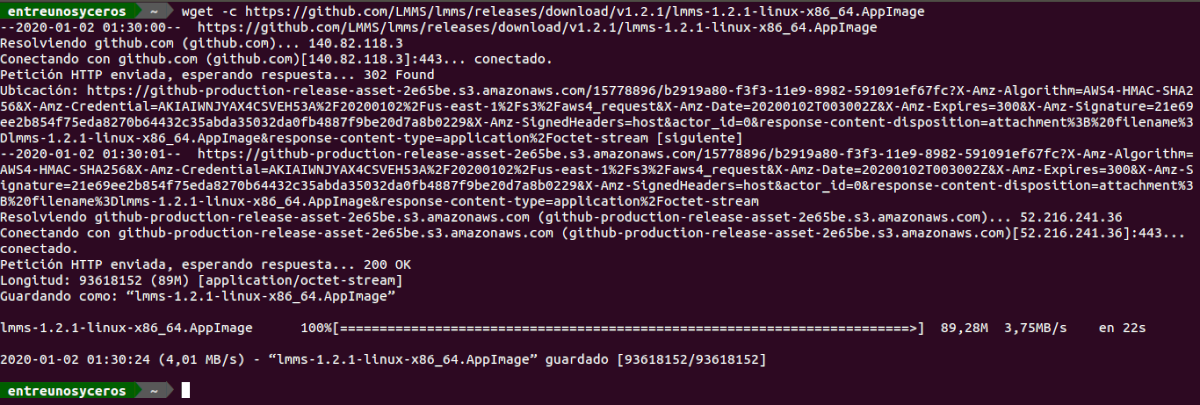
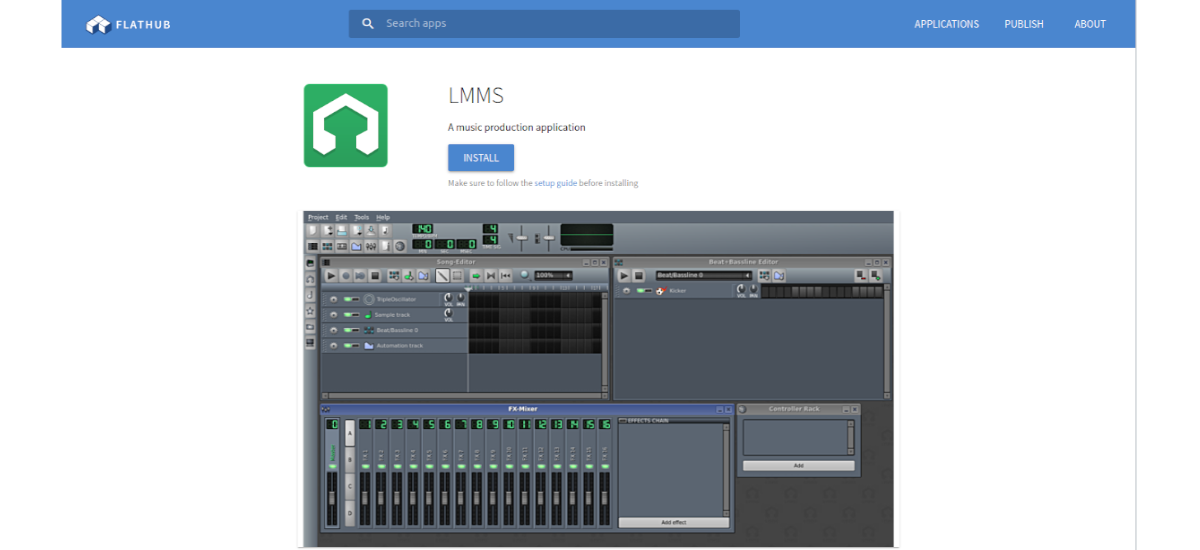

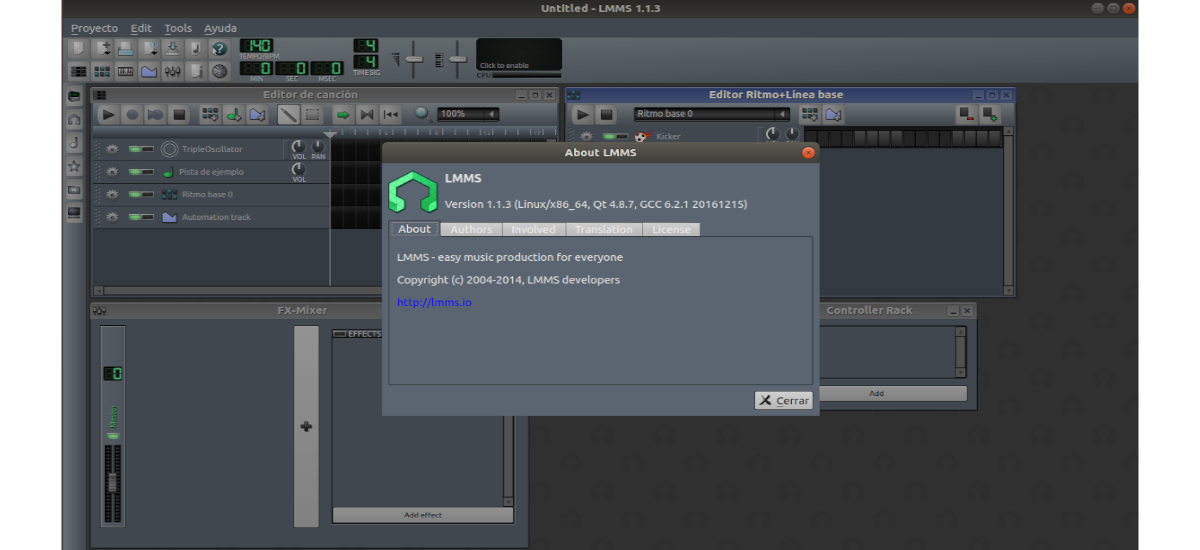
Apparently they don't plan to implement a score viewer, right? When are you planning to fix the bug that confuses the drum track with a piano? and some midi some channels do not sound when do you think to solve that?
When all that is resolved, it could be my favorite sequencer, and VST can be used automatically for midi files (although in essence I have decent SF2s to do home projects)